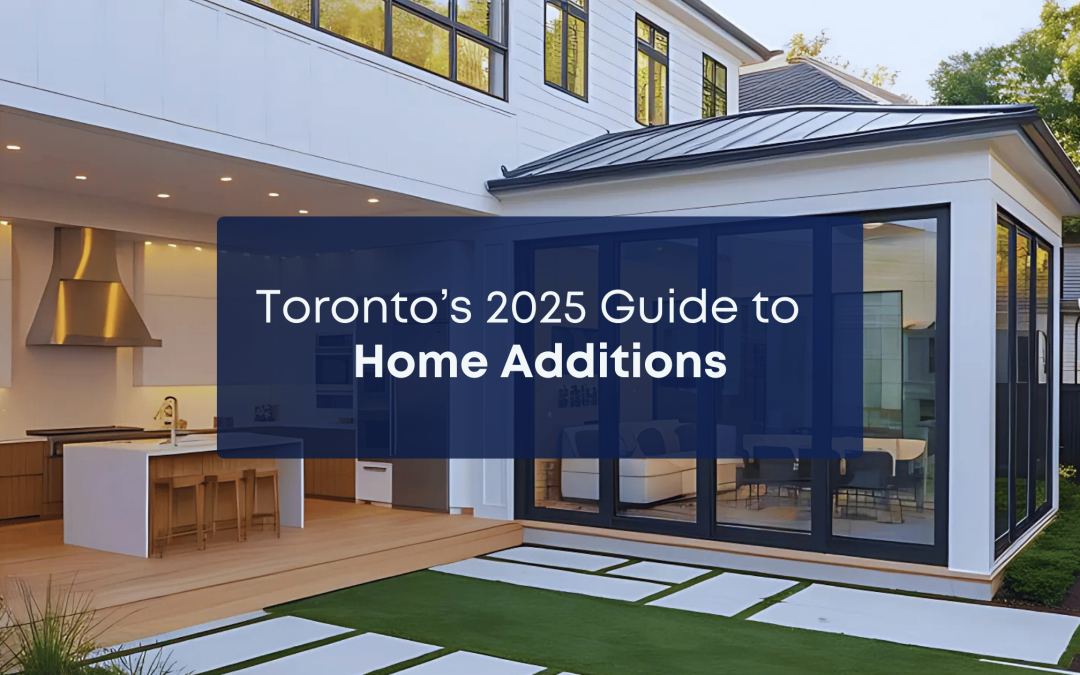
The Real Cost of Adding a Second Floor to Your Toronto Home (2025)
Meta Title: Second Floor Addition Cost Toronto | Real 2025 Prices
Meta Description: Discover real costs for second-floor additions in Toronto. From $325-550/sq ft, learn permits, timelines & ROI—2025 guide from local experts.
Your kids are sharing bedrooms. Your home office is the kitchen table. Sound familiar?
If you’re like most Toronto families, you’ve probably thought about moving to a bigger house. But then reality hits – the market’s brutal, interest rates aren’t friendly, and honestly, you love your neighbourhood.
Adding a second-floor addition could be your most brilliant move.
Based on extensive tracking of Toronto renovation costs, here’s what homeowners are actually paying in 2025. Spoiler alert – it’s not as scary as you might think.
What Are People Really Spending?
Forget the vague “it depends” answers. Here are the real numbers from Toronto projects.
The sweet spot for most families is between $375 and $425 per square foot. Budget-conscious homeowners typically fall within the $325–$375 range, while luxury additions with premium finishes can cost $450–$ 550 or more per square foot.
So, for that 1,000 sq ft addition everyone talks about, you’re looking at roughly $325,000 to $550,000. Yes, it’s a wide range – but there’s a good reason for it.
For more ideas on how additions compare to other renovations, explore our Toronto kitchen renovation services.
Why the Range Is So Wide
Just last month, two families on the same street in the Beaches both added 1,000 sq ft. One spent $385,000, the other $520,000: same neighbourhood, same size – but very different choices.
Family #1 kept it practical with laminate floors, standard fixtures, and a basic kitchen. Family #2 went all out with hardwood flooring, a custom kitchen with quartz waterfall counters, and a spa-inspired bathroom. Both homes look fantastic, but the investment levels couldn’t be further apart.
If you’re planning a kitchen as part of your addition, check out our kitchen renovation guide for inspiration.
Curious What Your Project Might Cost?
Get Your Personalized Estimate →
Real numbers • No sales pitch • Takes 2 minutes.
The Big Three Cost Drivers
Home Addition’s Size
The size of your addition is the first significant factor. Under 800 sq ft often means higher per-square-foot costs because fixed expenses, such as permits and engineering, are spread over a smaller area. The sweet spot is typically between 800 and 1,200 square feet, where economies of scale take effect. Over 1,200 sq ft, you’re entering premium territory, which adds impact but also higher costs.
Home Addition’s Finishes
Your finish choices can quickly shift your budget. A standard bathroom in your addition might cost $18,000–$25,000. Add heated floors, rainfall showers, and custom vanities, and suddenly you’re closer to $45,000.
The same goes for kitchens. A basic setup can be around $30,000. Instagram-worthy designs often start around $65,000, while a chef’s dream kitchen can easily exceed $100,000. Flooring also varies: luxury vinyl averages $6–$12 per square foot, hardwood averages $12–$18 per square foot, and wide-plank oak averages $20–$30 per square foot.
Want to explore cost-saving finish ideas? See our basement renovation page for inspiration on durable, family-friendly materials.
Home Addition’s Permits
Toronto’s permit fees themselves aren’t outrageous – expect to pay $8,000–$12,000 in total for fees, drawings, and engineering. The real challenge is time. Budget 3–4 months for approvals.
City of Toronto Permit Information
This isn’t something most homeowners should tackle on their own. Maserat’s experience helps prevent costly delays.
Build Up vs Build Out
One of the biggest questions is whether to build up or expand outward. Building up is usually the better choice in Toronto. It preserves your backyard, often moves through zoning more quickly, and typically delivers a higher resale value.
Building out can work if you have a considerable amount, or if stairs are a deal-breaker for your family. But for 95% of Toronto homeowners, building up is the smart move.
“We almost built out until Maserat showed us the numbers. Building up gave us the same space, kept our garden, and added way more value. Best decision we made.” — Jennifer K., Leslieville
Need more design insights? Review Toronto’s design guidelines for inspiration.
How Long Does Home Addition Project Really Take?
Most guides will tell you a second-floor addition takes six to nine months. That’s true, but here’s how it usually breaks down.
The first two to three months are design development, permit applications, and approvals. Months four to six bring the structure and framing, culminating in the exciting stage where your vision comes to life. Months seven to nine are all about details: drywall, flooring, finishes, and final inspections.
Weather matters more than you think. A November start can add weeks. A spring start may finish ahead of schedule.
Ready to start planning? Book Your Free Consultation →
For more information on the process, explore the Ontario Government’s renovation advice.
Ways to Keep Costs Reasonable
Not every family needs to splurge everywhere. Some choose to phase projects by completing the structure and rough-ins first, then finishing spaces later as budget allows.
Others focus their money where it matters most: kitchens, main bathrooms, and flooring in key living areas. Secondary bedrooms and lighting fixtures are areas where you can save now and upgrade later.
When it comes to financing, most families in Toronto use home equity lines, refinancing, or CMHC renovation financing. With today’s property values, many families have more equity than they realize.
Common Questions
What’s the real cost per square foot in 2025?
Most additions are landing between $375 and $425 per square foot. Budget projects: $325–375. Luxury: $550+.
Should I build up or add onto the back?
Build up unless you have a considerable amount. It’s more cost-effective and typically increases resale value.
How long does the permit process take?
Plan for three to four months in Toronto. Having an experienced contractor helps cut red tape. See the Toronto building permit overview for details.
Does this increase home value?
Yes. Properly executed additions often return 65–85% of the investment in resale value. Compare that to our kitchen renovation services, which also provide high ROI.
Can I stay in my home during construction?
Usually yes, but expect disruption. Many families plan short getaways during the noisiest phases.
Why Some Projects Succeed (and Others Don’t)
The most successful projects share three key characteristics: realistic expectations, effective communication with the contractor, and flexibility on minor details.
On the other hand, projects often struggle when homeowners change their minds frequently or attempt to micromanage every decision. Knowing your priorities upfront makes the process smoother.
For further reading, check Canada.ca’s healthy housing renovation guide.
Is a Second-Floor Addition Right for You?
This type of renovation makes sense if you love your neighbourhood but need more space, plan to stay at least 5–7 years, and your home’s structure can support it. It’s often more cost-effective than moving once you factor in land transfer taxes, legal fees, and Toronto’s rising housing prices.
It may not be the best choice if your lot is small, you’re planning to sell soon, or your home requires significant repairs before you start.
Ready to Stop Dreaming and Start Planning?
Toronto’s market isn’t slowing down, and the cost of desirable homes keeps climbing. A second-floor addition is more than extra square footage – it’s about creating a home that truly fits your family’s lifestyle.
With over 200 second-floor additions completed across Toronto, Maserat Developments combines realistic planning, premium craftsmanship, and clear communication from start to finish.
🏗️ Schedule Your Free Consultation →
Professional assessment • Transparent pricing • Expert guidance
This guide provides general pricing information for second-floor additions in the Toronto area. Actual costs vary based on project requirements, site conditions, and market rates. Contact Maserat Developments for a personalized estimate.

